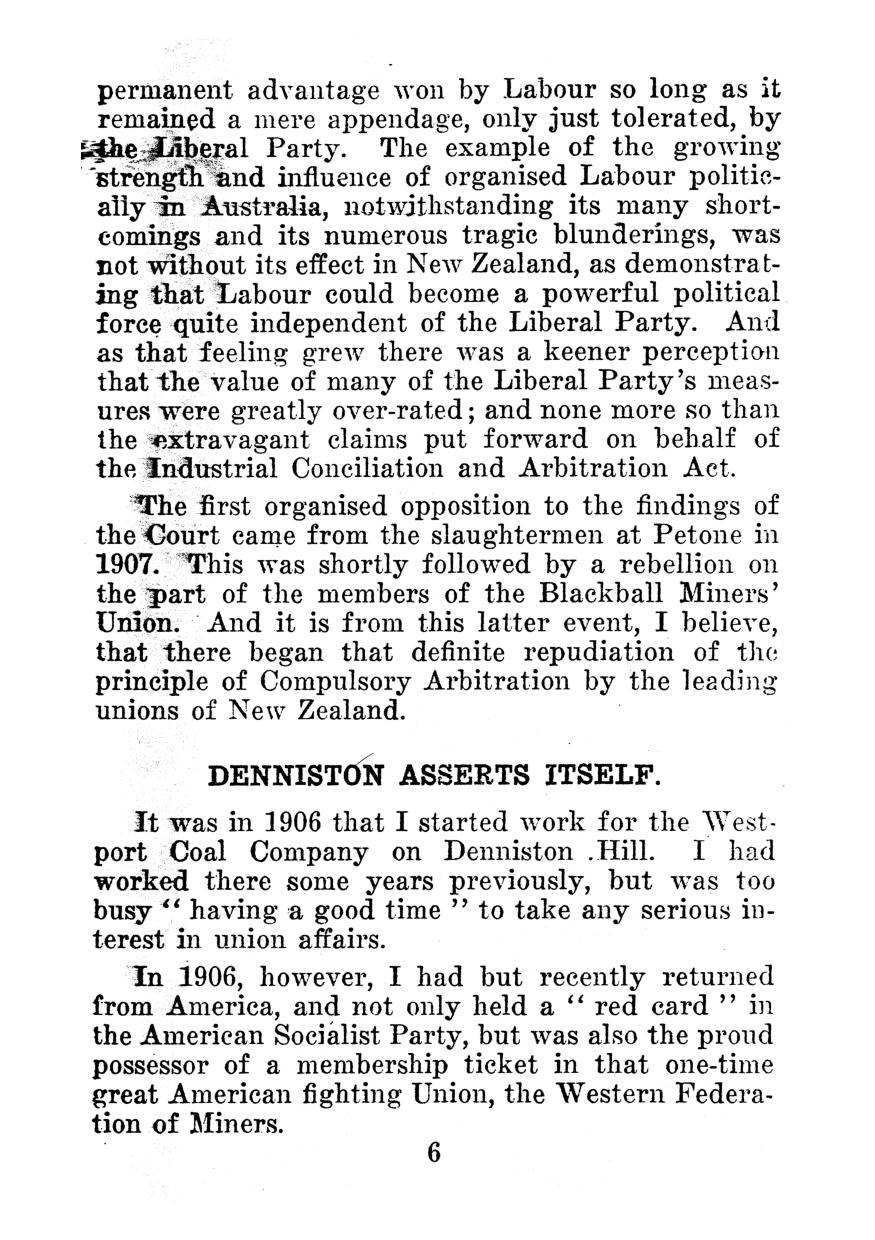permanent advantage won by Labour so long as it remained a mere appendage, only just tolerated, by the Liberal Party. The example of the growing strength and influence of organised Labour politically in Australia, notwithstanding its many shortcomings and its numerous tragic blunderings, was not without its effect in New Zealand, as demonstrating that Labour could become a powerful political force quite independent of the Liberal Party. And as that feeling grew there was a keener perception that the value of many of the Liberal Party’s measures were greatly over-rated; and none more so than the extravagant claims put forward on behalf of the Industrial Conciliation and Arbitration Act.
The first organised opposition to the findings of the Court came from the slaughtermen at Petone in 1907. This was shortly followed by a rebellion on the part of the members of the Blackball Miners’ Union. And it is from this latter event, I believe, that there began that definite repudiation of the principle of Compulsory Arbitration by the leading unions of New Zealand.
DENNISTON ASSERTS ITSELF.
It was in 1906 that I started work for the Westport Coal Company on Denniston Hill. I had worked there some years previously, but was too busy “having a good time” to take any serious interest in union affairs.
In 1906, however, I had but recently returned from America, and not only held a “red card” in the American Socialist Party, but was also the proud possessor of a membership ticket in that one-time great American fighting Union, the Western Federation of Miners.
6
